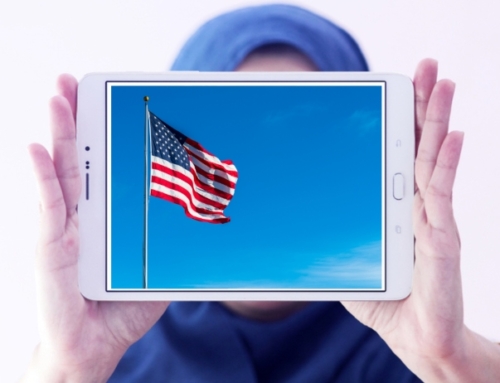The Importance of Supporting Muslim Educators in Schools
When administrators and teachers think of how Islamophobia shows up in schools, they might think about how Muslim students are bullied by their peers and discriminated against by their teachers. Yet, Islamophobia is the individual and systemic irrational fear and prejudice of Muslims, regardless of their age. What is often missing from this narrative is the experience of Muslim educators in our schools. How do Muslim teachers, guidance counselors, paraprofessionals, etc. feel about their interactions with their colleagues and their administrators? Does the school promote an environment of inclusiveness and cultural competence? Administrators and teachers alike need to be mindful of their interactions with Muslim educators for several reasons. Muslim educators bring a multitude of strengths to the classroom that are essential for learners in our globalized world. They are often understanding of multicultural backgrounds and highly socially conscious. They can provide new perspectives and connect with the Muslim students and students of color in schools.
Unveiling The Experiences of Muslim Educators
Very little formal research has been carried out that tracks the experience of Muslim educators in their schools. To address this lack of research, Reclaiming Muslim Educators (ME), a research collective of seven Muslim educators operating from Montclair State University, is collecting and connecting the experiences of Muslim educators in the United States. Through surveys, focus groups, and interviews Reclaiming ME is exploring the unique experience of being a Muslim educator in a school. The results of this inquiry have revealed some insightful trends amongst Muslim educators. Many educators reported feeling censored, isolated, and misunderstood. But some schools are doing a fantastic job of making Muslim educators feel welcome. The following recommendations stem from the discussions with these Muslim educators on how schools have supported them.
Building Inclusion and Understanding
1. Ask Before Assuming Anything
Most people think that Muslims all come from Saudi Arabia and speak Arabic. However, that is not true. In fact, there are 1.8 billion Muslims worldwide and Muslims in the United States are so diverse and come from so many different countries and backgrounds that others often have a hard time classifying them. There is not a single race or ethnicity that dominates the rest. About 41% of American Muslims consider themselves white, a category that includes those who describe their race as Arab, Middle Eastern, Persian/Iranian or in a variety of other ways. About 30% percent are Asian, including those from South Asia, and about 20% are black. About 8% identify as Hispanic, and the other 3% consider themselves mixed with other races. With so much variety, it is no surprise that Muslim educators also differ widely in their appearance, opinions, and religiosity. When in doubt, simply ask and chat.
2. Maintain Your Expectations
While no administrator, supervisor, or teacher, usually goes out of their way to treat staff members differently, the political climate of our country sometimes leads to the censorship of Muslim educators and a difference in how Muslim educators are responded to. Muslim educators are also expected to be experts on global issues and are sometimes held to different standards. The same standards, rules, and expectations should be held of all staff members. Additionally, just as no other staff member is obligated to explain personal choices about how they dress or practice their religion, Muslim educators should also not be subject to personal questions about how they choose to dress or practice theirs.
3. Acknowledge Muslim Holidays
Schools have a responsibility to create a welcoming community, and both staff and administration can set a precedent for fellow staff members and students to follow. A simple “Happy Ramadan” or “Eid Mubarak” goes a long way. No one is obligated to acknowledge someone else’s holiday, but it is one way to make sure your Muslim colleagues and employees feel seen. Some Muslim educators reported that their administrators and staff would host staff iftars (meals during which Muslims break the fast during Ramadan) to be even more inclusive. In a similar vein, not forcing Muslim staff members to participate in winter holiday door decorating contests, Christmas parties, and other school events that center holidays they do not celebrate. Some Muslim teachers love to be involved in these events and that is great, but make sure it is not an obligation that would penalize Muslim teachers if they do not want to participate.
4. Educate Yourself & be Understanding
Most importantly, make sure that you educate yourself and check your own biases. We all have biases and the first step to moving past them is acknowledging they exist. Be careful not to tokenize your Muslim staff members as the “go to” for anything related to Islam, or even more problematic, the Middle East. Remember not to conflate Arab with Muslim. Remember that many Muslims try to fulfill the obligation to pray five times a day and some of those prayers may land during the school day, therefore, some teachers are going to ask for permission to pray somewhere, privately, in the building during their breaks. Remember that it is your responsibility to ask questions and seek answers, www.teachingwhilemuslim.org is a great place to start! Some Muslim teachers love to answer questions about their identities, but not everyone does. Lastly, remember that some Muslim educators will not feel comfortable participating in staff outings that include alcohol, or activities that include physical contact with the opposite gender, such as dances or staff parties. Ensuring that these educators do not feel pressured adds to making them feel more welcome and creates an inclusive environment.
Fostering Inclusivity in Schools for A Globalized World
Ultimately, teaching while Muslim could be an exhausting, draining experience, or a fulfilling and positive one. A major factor is how the adults in the building, the other staff members and the administrators, approach and treat their Muslim colleagues. In our globalized world, it is critical for students to be taught by teachers that can provide them with different perspectives. Hiring a Muslim teacher is a great start, but it is important for administrators and colleagues to check biases and ensure that Muslim educators have just as great of an experience in our schools as the rest of the staff. Reading through this means that you’ve already taken the first step to building an even more safe and inclusive school community!
Nagla Bedir is a high school social studies teacher in NJ and the founder and executive director of Teaching While Muslim. She has a Master’s Degree in K-12 Social Studies Education from Rutgers University and a Master’s Degree in Educational Administration from Grand Canyon University. She serves as the Diversity co-chair for the New Leaders Council and is a recipient of the 2019-2020 Fulbright Teachers for Global Classrooms Program Grant.
Nagla can be contacted at naglabedir@teachingwhilemuslim.org or reclaimingmuslimeducators@gmail.com for information on Reclaiming Muslim Educators’ research.
Got Questions?
We have Answers. Get in touch now.








